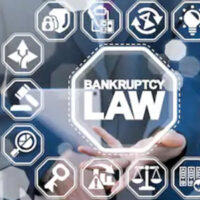Can You Get Rid of an Unsecured Lien on Your Home in Bankruptcy?

When property is secured by a lien, such as a home that is secured by a mortgage, the mortgage continues to be valid. You may never have a personal obligation to pay off the loan, but the property can still be taken by the bank after the bankruptcy if the loan is behind or in default.
That’s because with secured liens—such as mortgages or car loans, which are secured by the vehicle itself—the discharge only wipes out the debt. The lien—the thing that allows the property to be repossessed or foreclosed on if it isn’t paid—is not a debt, and thus, is unaffected by the bankruptcy discharge.
Unsecured Second Liens
This begs the question of whether a lien on a home that is completely unsecured can be wiped out. This commonly occurs with property that has negative equity or that is under water.
For example, imagine a home that has a $120,000 first loan, and a $50,000 second loan. However, the property is only worth $100,000. The first lien, for $120,000, is partially secured, but the second $50,000 lien is completely unsecured. In other words, the value of the property is not high enough to “reach” the second lien (and it only partially covers the first lien).
The first lien is only partially secured, but in 1992, the Supreme Court said that partially secured liens were still liens, and the debtor could not lower the lien (that is, wipe out the part of the loan that exceed the value of the property).
By definition, however, the second lien is not a secured lien—there is no part of the property that covers the lien. It should be treated like a medical debt or a credit card debt in that it should be completely dischargeable. This used to be called “lien stripping.”
Supreme Court Eliminates Lien Stripping
However, the Supreme Court in 2015 did away with this practice. Although the second lien on property may be unsecured due to the “under water” status of the property, the Supreme Court said that the lien was still a lien, and thus, could not be extinguished or stripped off like it was an unsecured debt.
Contact Us Today for Help
Do you have questions about filing for bankruptcy? Don’t hesitate to call the West Palm Beach bankruptcy lawyers at Kelley Kaplan Delaney & Eller, PLLC, at 561-264-6850 for help if you have secured or unsecured debts that need to be handled in a bankruptcy.
Resource:
supremecourt.gov/opinions/14pdf/13-1421_p8k0.pdf



